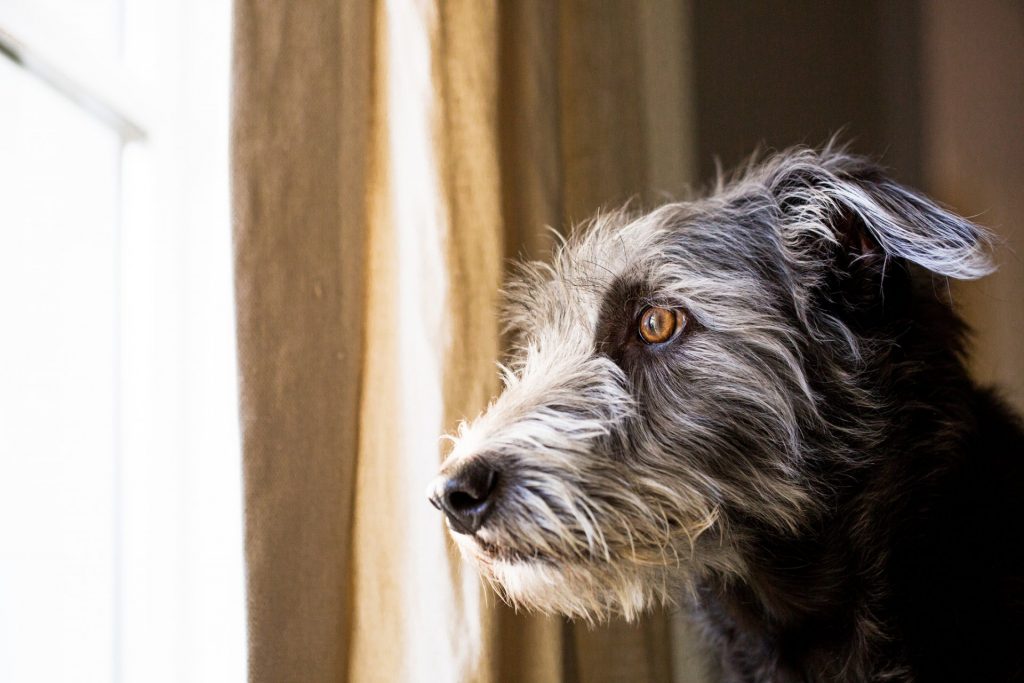**Article provided by CEVA**
Unfortunately, anxiety in our pets may be as common as in us humans! Dogs and cats are wonderfully social and complex creatures…two big reasons why we love them so much. But with that complexity comes many challenges. To help our furry friends feel as calm as possible, we all can try to better recognize the signs of stress, anxiety, and fear.
Many unwanted behaviours in our pets can be the result of anxiety. Fortunately, if we can better identify potential symptoms, there are many things we can do to help alleviate stress in our pets and improve their behaviours. The following are some simple tips and suggestions that could help your family pet find their calm.
What causes anxiety for our pets?
The causes of pet anxiety are nearly as numerous as those for human anxiety, and in many ways are quite similar. Fear of change, fear of being alone, and fear of the unknown are probably the three big categories for everyone! Some common categories of anxiety in our pets are:
• Separation anxiety (being alone)
• Loud noises like fireworks and thunderstorms (the unknown)
• Changes in the home (changes)
• A big disruption to schedules (changes)
• A new pet in the home (changes)
• Vet Visits (strong memories of unpleasant things in the past!)
How common are the above? It is estimated that about 77% of pets suffer from stress & anxiety.
What are the signs of anxiety in pets?
You will notice from the list below, that many symptoms of anxiety or fear could have multiple causes. For example, barking, drooling or panting obviously could signify many different things depending on the situation (e.g. excitement, hunger, exhaustion).
In dogs, common signs of anxiety or fear include:
• Barking / whining
• Pacing
• Scratching
• Chewing
• Drooling
• Panting
• Urinating and defecating in the house
• Shaking
• Digging
In cats, commons signs include:
• Scratching
• Peeing or pooping outside the litterbox
• Constant meowing
• Hiding
• Fighting
How to Help Our Pets Feel Less Anxious
Whether it’s a recent change in behaviour, or a problem behaviour that has been around for a long time, anxiety may be the cause. First, it is always a good idea to talk to your vet to rule out any potential medical issues. With that done, here some simple tips and solutions to help reduce anxiety in pets.
- Spend more together time If possible and don’t hold back on physical contact. Physical contact helps both humans and pets relieve anxiety…bring on the love!
- Change the environment: It may seem obvious, but if you are able to identify the stressor and can remove it, do so!
- More exercise! Walking, playing, running…whatever can get some energy out and get the blood flowing.
- Safe spot: If possible, create a quiet and safe space in an interior room that can serve as a escape from problem stimulations.
- Get professional help: Speak to your vet for the best guidance!
- Try pet anxiety products that are proven to help.
FELIWAY & ADAPTIL are clinically proven to help manage signs of stress and anxiety for cats and dogs. ADAPTIL combined with the ThunderShirt is also a great solution for dogs. FELIWAY Diffuser comforts cats at home and helps reduce signs of stress such as urine spraying, scratching or hiding. Available in a collar as well as a diffuser format, ADAPTIL helps comfort and reassure dogs and puppies, helping them to feel calm and relaxed. Like swaddling an infant, ThunderShirt’s patented design applies gentle, constant pressure to calm many types of anxiety, fear, and over-excitement issues. Try these perfect calming companions for your furbaby!



